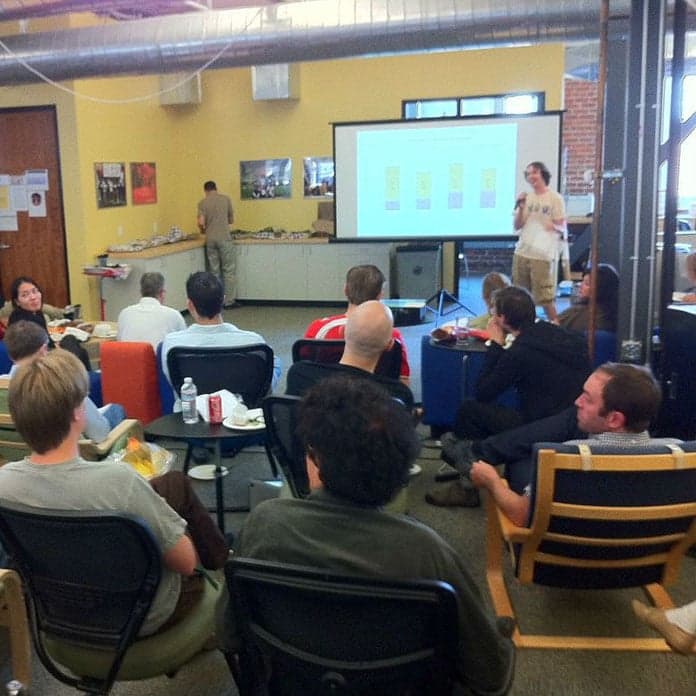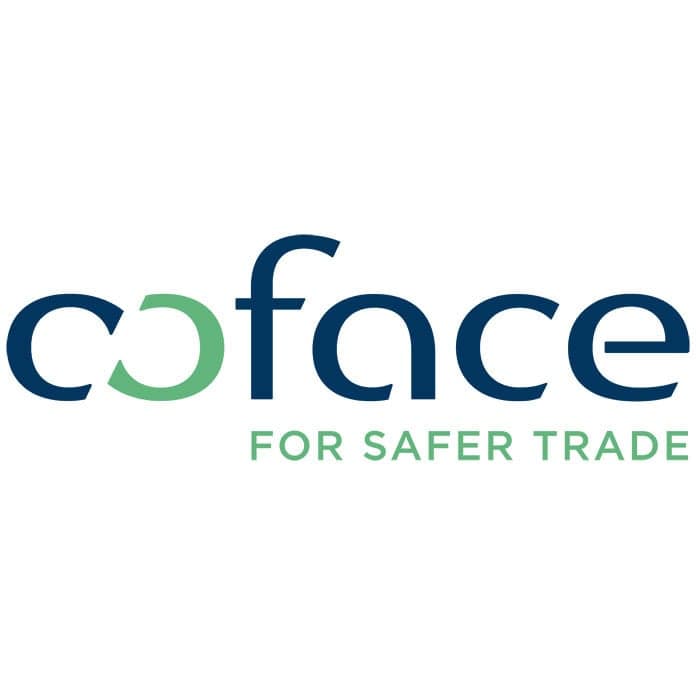This week, the globalEDGE blog is taking a look at the leisure industry. Each day, our blog series will explore different areas of the global leisure industry, which includes recreation, entertainment, sports, and tourism. Globally, the industry encompasses a wide variety of businesses and companies, from major hotel and resort companies with locations around the world to small mom and pop shops. With the many sectors and businesses, the industry has a major impact on many economies across the world.
globalEDGE Blog - By Author: Tynan Ford
Publish Date:
This Friday, April 18th, the International Business Center at Michigan State will be holding a workshop in Madison, Wisconsin, as part of the International Business Institutes on the Road educational effort. The On the Road workshops are an extension of the flagship International Business Institute for Community College Faculty (IBI) which was offered in East Lansing, Michigan, from 1995 to 2015. The IBI’s goals are to provide participants with the knowledge, experience and resources they need to internationalize general business courses and/or develop specialized international business courses at the two-year college level.
Publish Date:
Export.gov is a great resource for your international business needs. The website contains a wide variety of tools and information to help you and your business succeed with international trade. Recently, Export.gov released a series of new videos to help educate small and medium-sized companies on exporting, and to encourage these businesses to start exporting or expand their exporting operations.
Publish Date:
This week, the National Business Education Association (NBEA) is holding its annual convention in Chicago, Illinois. NBEA is celebrating its 125th anniversary this year, and the convention will include over 70 educational sessions which will cover a variety of topics related to business education. Today is the first day of the convention, which will run throughout the week, ending on Friday the 15th. Check out the NBEA 2017 Convention page to learn more about conference details and the topics to be covered.
Publish Date:
This week, the globalEDGE blog is diving into the transport manufacturing industry. Over the next four days, we will take a look at automotive, airplane, and train manufacturing, along with a blog on the impact of emerging markets on the global industry.
The transportation manufacturing industry is comprised of businesses that manufacture vehicles, vehicle parts, and the infrastructure that supports them. Sectors in the industry include passenger cars, semi-trailer trucks, container ships, airplanes, and trains. Although most picture major companies such as Ford, Toyota, Boeing, or Airbus when thinking of the industry, smaller businesses that supply the parts and electronics are equally important.
Publish Date:
globalEDGE is proud to be a sponsor of Coface's annual Country Risk Conference. The conference will be held on April 20th in New York City, and will focus on business to business trade around the world. Topics covered will include Brexit, how the United States' new trade policies will impact international trade, low oil prices, and the emerging markets in Central and Eastern Europe. Business professionals, consultants, and researchers are welcome to attend the event, and registration is available on Coface's site. To learn more about the conference, click here, and to learn more about country risk, visit our recently updated country risk pages.
Publish Date:
The Russian economy has been hit hard by the global drop in oil prices, which began in the summer of 2014. Oil prices, once over $110, now sit slightly above $50. Oil exports are a vital component of the Russian economy and made up $250 billion of the country’s exports until the collapse in prices. Today, oil exports only amount to $60 billion, a 75% drop. To combat the reduction in oil exports, the Russian government has been working hard to build up the country’s agriculture industry. The government’s efforts, along with positive impacts from European Union sanctions, are beginning to make a difference and are shaking up the global dynamics of the agriculture industry.
Publish Date:
This week, the globalEDGE blog will be taking a look at various trade blocs around the world, focusing on smaller blocs you might not have heard of. Following the end of World War II, trade agreements became common throughout much of the world. European states began to look for ways to increase trade between themselves, states in South-East Asia saw cooperation as a way to increase economic growth among all members, and Arab nations looked to unify to better market their natural resources. Trade agreements can help smaller countries have more of a say in the global economy, and help encourage exporting for local businesses.
Publish Date:
Mongolia is in the midst of a debt crisis, and this week it was announced that the troubled country would receive a $5.5 billion international bailout. The loan will be financed by a collection of entities, including the Asian Development Bank, the World Bank, Japan, South Korea, and China. Mongolia’s struggles are recent, but came swiftly. After growing an incredible 17% in 2011, the country quickly fell into cash problems. China’s economic slowdown was a major factor in the economy’s collapse, along with falling commodity prices, a backbone of the Mongolian economy.
Publish Date:
This week, the globalEDGE blog will be taking a look at the global agriculture industry and its relevance to the international business world. In the following four days, we will look at current stories pertaining to the industry, including a look at Latin America and South Africa, along with how climate change is impacting farmers. On Friday, we will look toward the future, at how new techniques and technologies might improve the economic environment of the industry.
Publish Date:
Dr. Tomas Hult, professor of marketing and Byington Endowed Chair at Michigan State University’s Broad College of Business, as well as Director of MSU’s International Business Center, was recently recognized for his outstanding research. Dr. Hult co-authored four articles for the Journal of Marketing last year, the biggest single-year contribution by any expert in the journal’s history. Read more by clicking the link below.
http://broad.msu.edu/2017/02/10/faculty-spotlight-international-innovator/
Publish Date:
In the United States this weekend, the country’s biggest event on television, the National Football League’s Super Bowl, will take place. The Super Bowl has become known not only for the play on the field, but also for the advertisements that accompany the television broadcast. For just 30 seconds of air time, a company must pay $5 million for their advertisement, an incredible price that is justified by the huge television audience and the Super Bowl’s unique focus on commercials. In today’s blog post, we will take a look at how and through what channels companies try to engage the general population.
Publish Date:
The globalEDGE team is proud to announce that we have revamped our website with a completely new design. We hope the new website will be easier for our users to maneuver while also better highlighting the sections of the site we feel are most useful. The new panel on the home page is part of this effort, and each week we will use this area to direct users to different areas of the site.
Publish Date:
This week, the globalEDGE blog will be taking an in depth look at the global hospitality industry, looking at the present trends in various sectors of the industry, as well as looking toward the future. For our purposes, we will consider the hospitality industry to be the collection of companies and businesses that cater to the needs of travelers. Major sectors include hotels, restaurants, and recreational businesses, such as casinos, sports and tourist attractions.
Publish Date:
Sarah Singer, assistant director at the International Business Center at Michigan State University and manager of globalEDGE, was recently interviewed by Open to Export to discuss how globalEDGE can assist in market research for exporters. Highlighted in the discussion were especially useful resources for exporters on globalEDGE, such as our risk comparator tool, country trade statistics, and country indices. Sarah also offered advice for exporters who want to research potential new markets, and how globalEDGE can be an important tool for this research.
A link to the interview is available here: http://opentoexport.com/article/market-research-focus-globaledge/
Publish Date:
Have you visited the globalEDGE Business Beat recently? In last week's segments, Tomas Hult discussed a wide range of topics, including the refugee crisis and its impact on Turkey, Israel's relationship with the United States, and the current dynamics between the United States and Cuba. The Business Beat is hosted by Dr. Tomas Hult of the Broad College of Business at Michigan State University, and consists of brief audio segments that drive into current topics impacting the international business world. You can view past segments by date or by specific speaker on our page featuring the Business Beats.
Publish Date:
In today’s blog, we will take a look at the logistics industry and how it deals with the incredible challenges of delivering packages to customers around the world. With the holiday season in full swing and as frantic shoppers look to purchase last minute gifts before Christmas, the shipping industry is forced to work 24/7 to meet demand. The holidays can make or break the year for many retailers and ecommerce websites, and these businesses depend on shipping companies to ensure their customers are satisfied.
Publish Date:
This week, the globalEDGE blog is taking a look at long-term mega trends that will have a major impact on international business in the coming years. Today, the focus is on changes in demographics and society, and how these factors can influence business decisions. Being aware of demographic and social shifts is vital for businesses, especially those who are conducting business across international borders. Changes in population or consumer attitudes can force businesses to adapt, or risk losing their place in the industry. Because of this, many businesses are constantly looking to the future to try to get ahead of the trends before their competitors can.
Publish Date:
Second Shift: The Inside Story of the Keep GM Movement, looks at how Lansing, Michigan was able to save one of its auto plants from closing. Tomas Hult, professor and director of the International Business Center at Michigan State, co-authored the book along with David Hollister, Ray Tadgerson, and David Closs. The four authors recently gave a talk at Google, highlighting their research and perspectives on the efforts to save the General Motors plant from closing.
Publish Date:
The globalEDGE Business Beat features brief audio segments covering a wide range of international business topics. Hosted by Dr. Tomas Hult of Michigan State University, the Business Beat helps keep listeners up to date with global business news. In last week’s segments, Tomas discussed the U.S. Department of Education’s CIBER program, entrepreneurship, the customer service aspect of marketing, and Michigan State’s marketing and management programs. You can also check out the Business Beat archives, where you can view past segments by date or specific speaker.
Publish Date:
Have you had the chance to visit the globalEDGE Business Beat recently? These brief audio segments feature conversations between globalEDGE Director Tomas Hult and prominent members of the international business community, covering a wide variety of interesting topics. In the most recent segments, Tomas talks with both of Michigan’s US senators, Gary Peters and Debbie Stabenow, on the auto industry and education.
Visit the globalEDGE Business Beat page today to hear from experts in the realm of global business and to expand your international business knowledge!
Publish Date:
This week, the globalEDGE blog is taking a look at international marketing and its implications for businesses, in a five part series. For companies conducting business in several countries, a strong marketing strategy can be extremely beneficial, connecting the brand with ideas about the company, such as trust or innovation. An effective strategy can bring about cost savings and introduce competitive advantages, which can be crucial for a company attempting to move into new markets.
Publish Date:
With the economic struggles of many emerging markets, Indonesia has been one of the few bright spots. The economy is expected to meet expectations and grow 5% this year, the fourth highest rate among emerging markets. The fact that Indonesia has been able to keep its economy growing is impressive, especially with the many outside factors that have significantly impacted other emerging markets.
Publish Date:
A stated goal of Singapore’s Ministry of Trade and Industry is to increase trade relations with the countries in Africa, which currently make up only 1.5% of the country’s total international trade. The continent’s economic potential and recent investments by other Asian nations has led Singapore to explore an expansion of trade, with an initial focus on free trade agreements. Singapore currently has very few agreements with any African nations, but in August, the country was able to work out small agreements with Nigeria, Ethiopia, and Mozambique.
Publish Date:
The latest segments from the globalEDGE Business Beat take a look at a new business trade book, Second Shift: The Inside Story of the Keep GM Movement. Tomas Hult, along with David Hollister, Ray Tadgerson, and David Closs, wrote the book detailing how Lansing, Michigan was able to save its auto plant from closing. The six new segments from the Business Beat feature Tomas Hult discussing the book and accompanying film with each of the co-authors, examining how the Second Shift Model was successful and pointing out key takeaways for others in the business world.
Publish Date:
Last week Amazon announced a reduced work week plan where employees will only work 30 hours a week, in an effort to improve productivity, employee happiness, and recruitment. The plan follows a recent trend among some businesses to make working hours more flexible, or even reduce the amount of time spent in the office. The idea behind the trend is that reduced hours will not have a significant impact on productivity, as studies have shown that work performance decreases as the number of hours spent working increases. With Amazon’s announcement, the reduced working schedule is moving from small companies and startups to the mainstream.
Publish Date:
Want to see how much your know about international business? The globalEDGE Test Your Knowledge section offers two quizzes to test how well you know the world around you. The International Business Knowledge Quiz contains questions on a wide range of topics including demographics, trade agreements, business statistics, and geography. Our second quiz will test you on the capital cities of countries around the world. Click this link to check out our Test Your Knowledge section!
Publish Date:
The latest economic numbers for the second quarter of 2016 were published Monday, and they do not paint a bright picture of the Japanese economy. Data shows the economy in Japan barely grew, expanding only 0.2%, lower than the already diminished target rate of 0.7%. The stalling growth was somewhat expected, considering April earthquakes and the impact of Brexit, but was still worrisome considering the large drop from 2% growth in the first quarter.
Publish Date:
In the latest globalEDGE Business Beat, MSU's International Business Center Director Tomas Hult talks with 5 guests on a wide range of interesting topics. Included are discussions on voluntary green programs and their implications, customer satisfaction and its impact on stock returns, innovation inside companies, and the current state of international trade agreements. Check out the new Business Beat segments to gain insights into the international business world!
Publish Date:
For anyone conducting their business internationally, being aware of and understanding cultural differences is often essential for success. Issues such as directness, cultural values, and punctuality vary across countries, and expressions can have very different meanings in foreign cultures. By researching a country’s culture and customs first, you can impress and gain the respect of your international colleagues, helping to build relationships which will be crucial to the growth of your business in the new market.
Publish Date:
Want a quick way to compare data across multiple countries? The globalEDGE Comparator Tool offers an easy way to find labor, health, economic, and trade data for various countries, using data from the World Bank. Data fields include population, total tax rate, adult literacy, foreign direct investment, and more. The tools allows users to compare up to five data fields and twenty countries at once, in an easy to read format. Check out the Comparator Tool, a great way to gain more international business insights!
Publish Date:
Big data has long been a buzz word in the business world, with the seemingly endless benefits more data can bring. Companies use data to spot trends and find consumer preferences, allowing for things like personal advertising and targeted pricing. While big data can be very helpful, some businesses find trouble transforming the vast amount of information into useful insights.
Publish Date:
Innovation is crucial in the business world, and as companies and businesses grow larger, they often find it difficult to promote new ideas. Bigger companies are usually less mobile, and quick changes to operations and strategy become much harder to implement after initial success. For companies looking to break this mold, empowering upper level management is very important, in order to enact the changes needed to push the business culture toward innovation.
Publish Date:
Most of us will spend large portions of our lives working, at businesses and companies producing many different goods or services. Attitudes about the workplace, work-life balance, and business can change drastically, depending on where you are and who you are talking to. One factor that accounts for many of these differences is age, especially comparing the so called millennial generation to its predecessors. Globally, millennials have different opinions about the workplace than older generations, generally being more open to new opportunities, expecting flexibility, and hoping for a more engaging work experience.
Publish Date:
Following the loss of over $90 million from two banks, officials around the world are sounding the alarm on an integral part of the day to day operations in the international banking industry. The Swift network was created as a message system for banks to authenticate the transfer of money between accounts internationally. Hackers were able to infiltrate the networks of Bangladesh’s central bank in February and subsequently used Swift to steal $81 million from the central bank’s account with the New York Federal Reserve. A second attack on a bank in Ecuador netted the attackers an additional $12 million. The ability to hack Swift has prompted calls for reforms in the international banking industry, along with increased security measures among banks worldwide.
Publish Date:
Have you been gotten the chance to visit the globalEDGE Business Beat lately? The Business Beat, hosted by Tomas Hult, is a great way to gain in depth knowledge on current topics in the business world, and the latest segments cover a wide variety of interesting topics. Topics for May include the uniqueness of Sweden both culturally and economically, the Global Business School Network and its impact on business schools around the world, the American Marketing Association, and more. Make sure you check out the globalEDGE Business Beat page today!
Publish Date:
The sugar industry could be seeing big changes in the coming years, jump started when the European Union announced a liberalization of their sugar policies. The new sugar policy will allow farmers to produce more sugar, as production quotas and minimum payments have been abolished. With the new rules, the EU expects to become a net exporter of sugar for the first time since 2005, which will impact sugar farmers internationally, especially those used to importing to Europe.
Publish Date:
One of the newest technological curiosities to hit the globe is virtual reality, where, with a headset, users can be transferred to a “real” place anywhere on Earth, in an environment that is also completely interactive. The vast amount of applications for this technology make it extremely promising, and its impact on the business world could be huge, possibly in a way not seen since the creation of the internet. At this time, the headsets have mostly been focused on the entertainment industry, in applications like video games, but as virtual reality becomes mainstream, its use could spread to many facets of our lives.
Publish Date:
Since the BRICs acronym was first developed in 2001, the BRICS have been a symbol for economic growth and an increasingly global economy. Until recently, the five BRICS countries all enjoyed above average growth rates, and were seen as the leading emerging economies in the world. The acronym originally referred to four countries, Brazil, Russia, India, and China, until 2010, when South Africa was added to complete the acronym. Recently, the BRICS have seen their high growth rates decrease, and in Russia and Brazil, historic recessions are crippling their economies. Through these uneasy times, the BRICS development bank hopes to renew some growth in the slumping economies.
Publish Date:
As the world becomes increasingly global and more businesses look to expand internationally, an evaluation of risk can be crucial when making business decisions. Since 2012, ONDD (Office national du Ducroire) has evaluated seven specific types of risk in over 180 countries, releasing the rankings to the public. The rankings cover areas such as commercial risk, short term credit risk, war risk, and risk of expropriation and government action. The rankings for 2016 were released this month and are now available to view in our Database of International Business Statistics (DIBS), where you can filter the data by year, country, and specific risk area. Being aware of risk is important for international businesses and the ONDD data set is a useful tool to begin your research.
Publish Date:
In 2001, Argentina was in the midst of an economic depression going on its third year. Unemployment rates were over 20%, and political instability and riots were fracturing the fabric of the country. Within a span of two weeks, the country saw five people hold the office of the president, while rampant hunger and looting occurred throughout the nation. The country had seen great economic growth throughout the 1990s, but by the end of the decade, this growth came crashing to a halt. Following failed austerity measures and the instability in the country, Argentina stopped payments on its debt, which at over $100 billion was the biggest default ever seen in the world.
Publish Date:
In the third part of this week’s blog series on the ASEAN Economic Community (AEC), we will look at the many economic and investment opportunities created with the formation of the new economic bloc, along with some possible economic implications in the region. With a combined population of 625 million and a relatively low GDP per capita, many see the AEC as a region ripe for growth and opportunity. The economic community has the potential to significantly impact all ten participating countries, as a reduction in tariffs and freer trade could open new avenues for many businesses in the bloc, as well as foreign companies looking to expand.
Publish Date:
Over 68% of countries have serious issues with corruption, including half of the G20. More than 5.5 billion people live in a country with major levels of corruption. These are the findings of by Transparency International, in the Corruption Perceptions Index (CPI) for 2015, which was released this week. The data on globalEDGE has been updated to reflect the recent release, and is available to view in the country pages, along with our Database of International Business Statistics (DIBS). This year’s release featured 168 countries, highlighting countries which have the least and most corruption. The index specifically measures the perceived levels of public corruption, by utilizing and combining various data points into one score.
Publish Date:
In a recent Entrepreneur article, Jane Porter discusses the psychology of the average workday, giving tips on how to get more out of each day. In today’s blog, we will look some of the suggestions given in the article, as well as take a broader look to see how a normal workday might differ in several countries. One of the main takeaways from the article is that workers should look at the workday as several blocks of time, instead of one single eight-hour period to accomplish their tasks. Splitting the day into sections takes advantage of what psychology tells us about our brains and behaviors, and may help workers accomplish more of the goals they set out for themselves.
Publish Date:
2015 has been a tough year for international trade, as new statistics show this year is on pace to be the worst year for trade since 2009. The numbers were a surprise compared with earlier projections, and have led to worries among some economists about the health of the global economy. The IMF had expected a 3.1% increase in trade volume compared to last year, but through three quarters of 2015, trade has only grown 0.7%. Analysts have highlighted lower demand from the Eurozone as well as an economic slowdown in China as major factors in the low trade numbers.
Publish Date:
2015 has been a huge year for mergers and acquisitions, with current projections predicting the total value for the year will be the highest since pre-recession levels. Well-known industry leaders such AbbVie and Pharmacyclics, Royal Dutch Shell and BG Group, and Kraft and Heinz have all announced mergers this year, creating huge international corporations to compete in the global market. Several sectors have seen a large share of the activity, one being the technology industry, especially in the electronics and semiconductor area. The semiconductor industry is the backbone of the technological industry, producing the chips used in computers, cell phones, and appliances.
Publish Date:
For many businesses, branding plays a vital role in their success. A recognizable brand that consumers can trust helps companies grow and expand, while also granting staying power as the business moves up the industry ranks. As companies have expanded internationally, branding power has only increased in importance, leading many businesses to spend large amounts of resources on the brand. With these large investments, companies view legal protections, such as trademarks, as an extremely important issue when doing business in a country, or when looking at prospective countries to enter.
Publish Date:
The Internet’s impact on international business has been incredible. Nowadays, companies invest large sums of money to grow their business through the internet, and it is normal for a business to be based solely on the web. The Internet has allowed companies to market their products to consumers halfway across the world and has helped connect employees situated around the globe. One of the major features of the internet has been its openness and free content, a business model mainly made possible by advertising revenue. The recent rise in popularity of ad blocking software is threatening to change this model, potentially impacting businesses operating around the world.
Publish Date:
China’s economy has been all over the news recently, as stock prices in Shanghai crashed and worries of an economic slowdown in the world’s second biggest economy troubled investors around the world. One of the most important sectors of China’s economy in recent decades has been the manufacturing industry, and reports on the industry have not helped quell investors’ fears. China’s manufacturing sector has been contracting since the beginning of the year, and recently hit its lowest mark in three years. The poor manufacturing data could be an early signal of an economic shift in Asian manufacturing, as neighboring countries try to take advantage of the developments in China.
Publish Date:
Following international sanctions over the Ukraine crisis and a steep drop in oil prices, Russia’s economy has been suffering from the effects of an economic downturn in recent months. One of the major industries affected by the economic crisis has been the Russian tourism industry, which has seen an estimated 35% decline in visitors since the beginning of 2014. Spending by Russian tourists has also declined as the financial crisis has deepened, resulting in a 44% drop in spending during December and a 51% decline in January. The loss of tourists has hurt all facets of the industry, and has forced many businesses to take cost cutting measures.
Publish Date:
The global travel industry is a major player in the global economy, accounting for 9.5% of the world’s GDP and employing 266 million people. Many consumers also deal with the industry on a regular basis, whether traveling on business trips or for vacations. With the large size of the industry and the constant demand, the travel industry is highly competitive and constantly evolving. Recently, this competition has led to consolidation in many sectors of the industry, such as the hotel, airline, car rental, and online travel sectors. Many of the biggest companies in these sectors are buying out their smaller competitors, seeing economies of scale as a strategy to maintain their leadership role in the industry.
Publish Date:
Multilingualism can be an incredible asset for companies that conduct business internationally, helping to bridge the cultural gap when conducting business in foreign countries. As emerging market economies grow and open new markets for businesses, an understanding of the local language can give companies a leg up over their competitors, possibly giving them the advantage needed to be successful in the market. In an article in Entrepreneur, author Ofer Shoshan lists six languages that he believes would be most helpful for English-speaking CEOs to learn in today’s globalized world, as he emphasizes the importance that multilingualism can play in business situations.
Publish Date:
With the March 31st application deadline quickly approaching for countries interested in joining the Asian Infrastructure Investment Bank (AIIB), Australia is rethinking its prior decision not to apply. The investment bank, led by China, recently added the United Kingdom, France, Italy, and Germany as members, even though the United States has issued warnings about the bank. The decision by these four major European countries to join the bank against United States wishes has led Australia to reconsider its position on AIIB, and look to possibly invest up to $3 billion in the AIIB.
Publish Date:
In part 2 of our international tourism blog series, we looked at currency exchange rates and their effect on tourism. In today’s post, we turn to the tourism industry in Sub-Saharan Africa, and its future outlook. For many countries in Sub-Saharan Africa, tourism presents a great opportunity for economic growth. Since 1990, the number of tourists arriving in Sub-Saharan Africa has increased by over 300%, and the tourism industry now accounts for almost 3% of the region’s GDP. As more governments realize the industry’s growth potential, the competition for foreign visitors continues to increase, making the next decade an interesting one for the entire region.
Publish Date:
In today’s blog post, we look at globalEDGE’s site traffic numbers, to give our users some interesting information about our site and its visitors. The traffic analysis, prepared by several of our team members with help from Google Analytics, looked at data from September 2013 to September 2014. The report found that globalEDGE was visited 1,531,166 times during this period, with over 73% of these visits from unique users. The average visitor viewed approximately 2.7 pages per visit, spending an average of 1 minute and 46 seconds per page.
Publish Date:
In part 3 of our global energy blog series, we discussed which countries could capitalize on the falling oil prices. For the fourth installment of the series, we turn our eyes to some of the environmental issues surrounding the energy industry, specifically the issue of carbon emissions. As climate change fears increase and become more urgent on a global scale, world leaders have been looking for solutions to reduce harmful emissions while avoiding the economic pitfalls that can be associated with taxes or regulation. One solution gaining popularity is carbon markets, which create carbon emission allowances that are given to businesses. These credits can be used or sold depending on the amount of emissions the business produces, giving companies an incentive to reduce their emissions.
Publish Date:
In the retail industry, holidays are often a huge source of revenue. Throughout the world, certain holidays have become a time for consumers to spend more money and retailers to make it. These holidays vary from country to country, and the recognition of these differences is an important issue for international retail companies. For retail companies to be successful, they often must take advantage of these holidays, through the use of marketing campaigns and possible discounts or sales. The targeting of these days across world will help international retailers grow sales and increase profits.
Publish Date:
After nearly 16 years, European beef will once again be making the trip across the Atlantic to American stores and restaurants. Ireland and its beef industry have become the first from Europe to be granted permission into the United States market, following over a decade long ban on beef from Europe. The ban resulted from the mad cow disease outbreak in the 1990s, and fears that it could begin an epidemic in the United States. The lifting of the ban could be a big help to Irish farmers, as well as the possible reopening of the United States market to all European cattle farmers.
Publish Date:
As discussed in an earlier blog post, oil prices are continuing to fall as global demand weakens, affecting economies around the globe, such as the United States, Norway, and Saudi Arabia. One of the countries most affected is Russia, which heavily depends on the oil industry, so much so that it makes up an estimated 60% of the country’s exports. The Russian government began the year expecting oil prices to be near $96 a barrel, and with current oil prices well below this number, there is reason to worry about Russia’s economy.
Publish Date:
E-commerce has quickly become a major factor for businesses across the world, as consumers’ comfort with online shopping continues to increase. With more options, better prices, and the flexibility of shopping at home, e-commerce has opened a new avenue for companies to conduct business, with global sales expected to hit $1.5 trillion in 2014. This avenue has also allowed companies to expand their operations across the globe, tapping new, lucrative markets. With this global expansion has come several challenges that businesses have to meet, as they must tailor their marketing and operational strategies to account for differences in each diverse market.
Publish Date:
In the fast paced business world of today, adoption of the latest technological advances is essential for sustainability and growth. One area of technology that more and more businesses are taking advantage of is the cloud, which allows data to be stored remotely on servers across the world. This remote storage has many advantages for businesses, such as allowing companies to rent hardware instead of purchasing the infrastructure themselves - which can be very costly. Cloud storage also gives companies greater flexibility with their data and information, as it can be accessed anywhere and anytime, which can be especially helpful for businesses that operate in many countries.
Publish Date:
The global price of oil has fallen sharply since June, when oil prices hit $115 a barrel. Now, only four months later, the price for a barrel of oil has dropped to $85, and it could keep dropping. Global supply of oil has increased in recent years, especially in countries outside OPEC, which is one reason for the drop in prices. A more concerning reason that could be adding to the lower prices is a global drop in demand, due to slowing economies, which could signal another global economic downturn. Whatever the reasons, the suddenly low oil prices could have huge impacts around the globe, positively or negatively affecting economies that rely on the production or use of oil.
Publish Date:
Africa’s second biggest economy is experiencing an energy shortage that is affecting consumers and businesses across the country. Eskom, the state-owned electrical provider, has informed customers that the company cannot keep up with the increasing demand for electricity, and has asked everyone to reduce the amount of energy they use. Recently, these measures have not been enough, forcing Eskom to implement managed electrical blackouts, impacting the 95% of South Africans that rely on Eskom’s service.
Publish Date:
Much of the talk surrounding biofuels in the past has centered on corn, wheat, soybeans, and sugarcane, which are known as first generation biofuels. These food crops were seen by many as a way to become more energy independent, as they could be processed to create ethanol fuel that in turn could replace our dependence on oil. The excitement of this prospect led many countries, such as the United States, to implement mandates requiring specific amounts of ethanol to be mixed with gasoline. These countries hoped that ethanol could help by lessening the impact of oil prices on the economy and by saving the environment from the increasing use of oil.
Publish Date:
As technology continues to grow and change throughout the world, the way consumers pay for their products is also changing. Consumers are using credit and debit cards at an increasing rate compared to cash, even with small purchases less than $5. According to a survey, one third of American consumers said that they usually pay for purchases under $5 with a card rather than cash. Even more surprising, 51% of those between the ages of 18 and 29 reported that they prefer to use a card when dealing with transactions under $5.
Publish Date:
As harvest time approaches across Europe, many farmers are worried about how much revenue they will make this fall because of trade restrictions with Russia. These trade restrictions, a result of the ongoing conflict in the Ukraine, have had a large impact on European growers, who ship an estimated 5.2 billion euros worth of produce to Russian markets. With Russia’s embargo on European goods, farmers across the European Union are scrambling to find new markets to sell their goods, or risk large price reductions as a result of smaller demand.
Publish Date:
Leaders from almost 50 African countries and the United States met in Washington DC on Monday, kicking off a three day conference that hopes to boost trade between the US and the largely untapped African continent. The summit highlights the realization by many US officials that greater attention needs to be paid to African countries who hold great economic potential. Leaders at the summit expect many trade and business deals to be signed during the three day conference, with some estimating that over $1 billion worth of deals will be announced by Wednesday. With these deals in hand, US African trade relationships could increase greatly in the coming years.
Publish Date:
The second richest man in the world, Carlos Slim, made a proposal this week that might excite employees around the globe. Slim, the Mexican telecom magnate, told those at a business conference that he thinks employers should move to shorter work weeks that promote increased leisure time for employees without losing productivity. His proposal had employees reporting to work only three days a week, giving workers four day weekends year-round. He believes that the shorter weeks would help to boost employee morale and increase leisure activities, which in turn would have a positive effect on the economy.
Publish Date:
In what would be a great engineering feat, plans for a canal to connect the Atlantic and Pacific Oceans in Nicaragua have been finalized. The idea of a Nicaraguan canal goes back to the 19th century, when officials in the United States looked into the feasibility of a canal project. Nicaragua ended up being passed over when Panama was chosen as the site for a trans-oceanic canal by Congress in 1902. After the Panama Canal’s construction, talks of a Nicaraguan canal died down until the early 21st century. With increasing world trade and the need for quick shipping, the idea of a second canal connecting the Atlantic and Pacific Oceans was proposed by the Nicaraguan government.
Publish Date:
Recognizing Albania’s recent governmental reforms, the European Union officially named Albania a candidate for membership, the first step for the country to join the EU. The move came after Britain and France agreed to drop their opposition to Albania’s candidacy, citing new leadership in Albania that has promised to reform the country. Led by Prime Minister Edi Rama, the government has begun to fight against corruption and crime which has ravaged the country for many years. Police forces have started efforts to retake control in areas dominated by drug cartels, and the government has pushed for reform in the country’s economic structure.
Publish Date:
As the world continues to embrace technology and its many advantages, business also has begun to rely more and more on technology, storing large amounts of sensitive data electronically. The ease at which computers can store and access information is a major reason for the shift toward electronic storage. With the efficiencies computers bring to the market, a new area of risk has been inadvertently created. The storage of sensitive information on computers opens business up to cyber attacks, with hackers looking to acquire company or customer information such as passwords or credit card numbers. The hackers can then use or sell this information, harming businesses, consumers, and company reputations.
Publish Date:
The price for a cup of coffee could rise in the coming months, as a fungus, known as coffee rust, hits the coffee crop throughout South and Central America. The fungus, which cannot be treated, has significantly affected much of the crop in several major coffee producing countries, such as Brazil, Ecuador, Columbia, and Mexico. In Guatemala, officials have estimated that an incredible 70 percent of the crop is infected, worrying farmers across the country who depend on coffee sales. The loss of such a large portion of the world’s coffee supply will force prices up, impacting people in countries around the globe, as well as many major food corporations that rely on coffee.
Publish Date:
As the violent protests and riots in Vietnam affect the country’s social harmony, the business climate is also being seriously impacted. Anti-Chinese riots erupted in Vietnam on Tuesday after the Chinese government placed an oil rig in disputed waters between the two countries, and by Thursday the riots had claimed at least 21 lives. Following mass demonstrations, some Vietnamese protestors began to loot and destroy Chinese businesses, and as the rioting intensified, the protestors started to target all foreign owned businesses. Along with Chinese establishments, Taiwanese, South Korean, Japanese, and Malaysian companies have all reported damages from the riots, which threatens to continue as emotions are still running high throughout Vietnam.
Publish Date:
Negotiations on the proposed Trans Pacific Partnership (TPP) heated up over the past week during President Obama’s visit to Asia, although no major breakthroughs in the talks were announced. The negotiations slowed down during the President’s visit to Japan, as talks between the United States and Japan focused on the auto industry; the two countries have long had a rivalry in the auto sector. Japanese car companies entered and ended the Big Three’s dominance of the US market during the 1970s. This tension has continued today, influencing the trade discussions and preventing the countries from reaching a deal during last week’s negotiations.
Publish Date:
On Thursday, Greece held its first bond sale since 2010, raising $4.2 billion as investors flocked to secure bonds from the hard hit country. Greece, which stopped issuing bonds in 2010 amid their country’s economic crisis, has hailed this bond sale as a sign that the country is recovering and heading in the right direction. Investors seemed to agree with this outlook, as their high demand reduced the return rates on the bonds to 4.95%, lower than the Greek government had first anticipated. The optimism around the bond sale has encouraged some that Greece is finally beginning to emerge from the financial crisis, although it must be remembered that this is only a small step in the recovery.
Publish Date:
For the first time in China’s history, a Chinese company defaulted on its bond payments, signaling a change in the country’s economic policy. Shanghai Chaori Solar Energy Science and Technology, a company that produces solar panels, could not make its interest payments on a one billion yuan bond, and defaulted after the Chinese government refused to bail the firm out. This is a stark change from previous actions by China, which has always bailed out onshore companies that were on the verge of defaulting. This decision to allow Chaori to default shows China’s commitment to a more open economy, in which investors cannot fall back on the government to bailout bad business decisions.
Publish Date:
Brazil’s economy posted surprisingly good numbers for the fourth quarter of 2013, renewing hope that the country’s economic fortunes can turnaround. Brazil had seen its GDP contract by .5% in the third quarter, leading some analysts to speculate that the country was headed for a recession. The new numbers for the fourth quarter show that the economy grew .7% from the previous quarter and 2.3% over the entire year, numbers that no one expected to see. This news brings some relief and encouragement to Brazilian officials, who currently have their hands full with issues surrounding the economy, protests, and major upcoming sporting events.
Publish Date:
In a meeting last week, the leaders of the United States, Mexico, and Canada got together and discussed various issues surrounding their own countries, including forming new trade agreements to open up more trade across the globe. These three countries entered into their own agreement 20 years ago when they signed the North American Free Trade Agreement (NAFTA), which was a significant step for regional trade in the Western Hemisphere. Now, these three countries hope that they can use NAFTA as a springboard to form new agreements with other countries in an attempt to find new markets and diversify their own economies.
Publish Date:
According to the first ever corruption report by the European Commission, the European Union (EU) is losing over 120 billion euros a year because of widespread corruption in many member nations. The report stated that the corruption regulations and controls in many countries are not adequate enough to effectively fight the fraud occurring across the EU. The loose regulations and inspection has allowed for much of the corruption to occur in local governments and communities in all member countries, showing that the Commission believes that corruption is a problem across the EU.
Publish Date:
Forecasts from the World Bank show that the global economy should experience more growth in 2014 than what was expected seven months ago, showing that the world’s economy is finally turning a corner from the recession of recent years. According to a report released on January 14th, the world’s economy should grow by 3.2%, up from the 3% projection made in June. This is good news to many investors and business people around the world, since it is the first time in three years that the World Bank has revised their forecast and predicted improvement.
Publish Date:
In what is deemed the last continent for major growth in the fast food industry, several chains are finding that expansion into Africa is going to be tougher than what was once expected. Infrastructure costs, food imports, and meat shortages have led to high prices at many quick serve restaurants across Africa. This has lowered optimism among some fast food executives about the prospects of expansion into the vast African continent, though there are others who believe now is the time for growth, even with the early setbacks.
Publish Date:
Major changes could be coming to China, after officials released plans to reform economic and social policies. China’s president, Xi Jinping, unveiled reform plans after a four-day conclave of Communist Party leaders in hopes that the economic changes will increase economic growth, which has slowed since the world-wide recession. Along with the economic reforms, plans were made to relax the one child policy and close labor camps, both infamous in the international community. The reforms, if implemented, could have wide-ranging impacts on society and business in China, improving human rights and opening new sectors of the economy to private companies.
Publish Date:
Greenland’s government embraced a major policy change last week that could greatly impact the country itself, as well as its relationship with other major countries. On Thursday, legislators narrowly voted to allow for mining of radioactive substances and iron ore on the Arctic island. In a 15-14 vote, Greenland’s parliament lifted a ban on mining uranium and rare-earth minerals, a decision that could significantly change Greenland’s economy and role in international trade. In another move, parliament gave London Mining PLC a thirty year license to mine for iron ore in hopes that the project will bring jobs and investment to Greenland.
Publish Date:
The United Kingdom’s membership in the European Union could be coming to a crossroads within the next few years, as Deputy Prime Minister Nick Clegg admitted Tuesday he no longer is fighting to keep the referendum off the ballot. Clegg is a fierce opponent of leaving the EU, relating it to “economic suicide,” but said on Tuesday that he now plans on showing the importance and benefits membership brings to the British economy, in hopes that he can convince voters to stay in.
Publish Date:
On Sunday, China opened a new, 28 square kilometer free trade zone in northern Shanghai. The zone will feature loosened restrictions compared to greater China, such as more freedom for banks and the opening of several industries. Foreign investors and companies hope the new zone will allow for easier access to the Chinese market, but the Chinese government has released few specifics on the regulations and rules of the zone. This has brought along skepticism on whether the zone will have any meaningful impact.
Publish Date:
In 2006, the people of Panama overwhelmingly approved a national referendum to expand and enlarge the Panama Canal. This $5.25 Billion project, currently 6 months behind schedule, is due to be finished around June 2015. The project will double the capacity of the canal by adding 4 new locks, which will be able to handle much larger ships, known as New Panamax. The question becomes how the expansion will impact global trade and shipping routes.
















